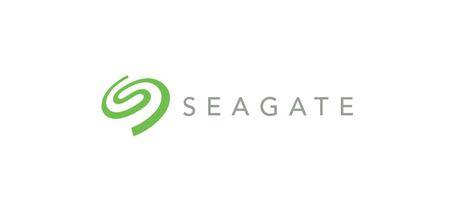Seagate to axe 6500 jobs; Avast to buy AVG; Diagnosing eye disease with AI

Data storage company Seagate has this week revealed plans to cut its global headcount by approximately 6500 positions.
The reveal was part of a broader announcement from the company containing selected preliminary financial information for its fiscal fourth quarter and year-end 2016, which ended on 1 July 2016.
The company said it expects to report revenue of approximately US$2.65 billion and a gross margin of 25% for the fiscal fourth quarter 2016. It also expects to report HDD unit shipments of approximately 37 million for that reporting period.
In that statement, the company revealed a restructuring plan for “continued consolidation of its global footprint across Asia, EMEA and the Americas”.
This restructuring plan includes reducing the company’s global headcount by approximately 6500 employees — 14% of its global headcount — by the end of its 2017 fiscal year.
Seagate said that this restructuring would be in addition to the restructuring announced on 29 June. In the SEC filing related to that announcement, marked 27 June, the company said it had committed to a restructuring plan that includes reducing Seagate’s global headcount by approximately 1600 employees.
The company said in the SEC filing at the time that it expected to “essentially complete” that restructuring plan by the end of the September 2016 quarter.
Seagate expects to report its fiscal fourth quarter and year-end 2016 financial results before the market opens on 2 August 2016.
Avast to buy AVG for US$1.3 billion
Avast plans to buy fellow security vendor AVG for approximately US$1.3 billion (about AU$1.71 billion).
According to a joint statement from the two companies, Avast and AVG have entered into a purchase agreement under which Avast will offer to purchase all the outstanding ordinary shares of AVG for US$25 per share in cash.
The statement said the acquisition would put the combined company in a position to take advantage of “emerging growth opportunities in Internet Security as well as organizational efficiencies”.
“The technological depth and geographical reach will help Avast serve customers with more advanced security offerings in the core business and new innovations in emerging markets, such as security for IoT devices,” the statement said.
The combined company would have a network of more than 400 million endpoints, which would act as “de facto sensors”, providing information about malware to help detect and neutralise new threats, the two companies said.
The management and supervisory boards of both Avast and AVG have approved the acquisition. AVG’s management and supervisory boards support the transaction and recommend that AVG shareholders accept the offer.
The two companies expect the transaction to close sometime between 15 September and 15 October 2016.
DeepMind joins forces with UK eye hospital
Google’s DeepMind AI company has formed a research partnership with UK eye hospital Moorfields that will see machine learning applied to the detection of common eye diseases.
Moorfields explained that currently, eye health professionals rely on digital scans of the eye to diagnose and determine the correct treatment for common eye conditions. Such scans are highly complex, and it takes eye health professionals a long time to analyse them.
The new research partnership will see Moorfields share a set of one million anonymised eye scans — and some related anonymous information about eye condition and disease management — with DeepMind.
According to Moorfields, the research project aims to investigate how machine learning technology could help to analyse eye scans. The organisation hopes the research could lead to faster and more accurate diagnoses of eye conditions and diseases.
Professor Sir Peng Tee Khaw, director of the National Institute for Health Research Biomedical Research Centre in Ophthalmology at Moorfields Eye Hospital and UCL Institute of Ophthalmology, said: “Our research with DeepMind has the potential to revolutionise the way professionals carry out eye tests and could lead to earlier detection and treatment of common eye diseases such as age-related macular degeneration. With sight loss predicted to double by the year 2050, it is vital we explore the use of cutting-edge technology to prevent eye disease.”
More information on the project is available at the Moorfields website.
Making sure your conversational AI measures up
Measuring the quality of an AI bot and improving on it incrementally is key to helping businesses...
Digital experience is the new boardroom metric
Business leaders are demanding total IT-business alignment as digital experience becomes a key...
Data quality is the key to generative AI success
The success of generative AI projects is strongly dependent on the quality of the data the models...







